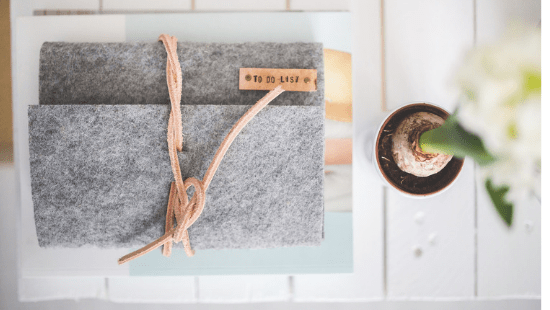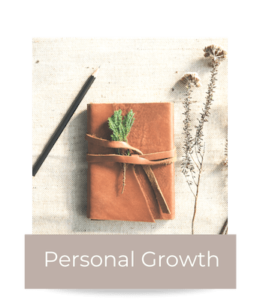It’s been said our intuition speaks to us in quiet yet meaningful ways.
Like when you get butterflies in your stomach in response to an opportunity you want to pursue. Or when your head is telling you to do one thing, but your heart is screaming at you to do another.
Those silent whispers and gut feelings are nudges for us to move toward something that may be waiting for us.
But the truth is, it can be difficult to know what your intuition is trying to tell you. It might be a new goal you should take on or a problem you are working through and can’t quite figure out where to go because of all the “noise” that is surrounding you.
You’re not alone on this one.
The external influences, pressures, and expectations of others that have created a lifetime of beliefs can cloud what we truly need to do. Even the routine tasks we do daily without blinking an eye can block a new door that is patiently waiting to be opened.
So do a quick check-in with yourself. Do you look at social media or emails upon waking up? Do you seek out the approval of others before you take action on a new endeavor? How do these external sources affect your thinking? Do you feel they may be placing a false veil over what is truthful for you?

Thankfully, there is a helpful way to sift through this all and truly listen to what your gut is telling you.
And that is through self-study (Svadhyaya). Self-study gives us the opportunity to simply do a check-in of what’s working and what is not. It can happen in many different forms, but many Yogi’s practice Svadhyaya through journaling.
Bonus benefits journaling has been linked to:
- Improving your mood/attitude
- Giving a greater sense of wellbeing
- Strengthening emotional health
- Improvement of your memory
- Reducing stress
On top of all of these benefits, by documenting your self-study, you can extract what is going on in your head to see patterns, thoughts, and idea’s that you may not have paid attention to before
You are literally teaching yourself about yourself. They say we are our own best teacher after all.
To help you tune in to what those little whispers and nudges are trying to tell you, below is a list of 24 self-discovery journal prompts to help get you started. You might be surprised to see what has been hiding behind a lifetime of noise.
24 Self-Discovery Journal Prompts
- What do I want others to know about me?
- What is something I accomplished, when I had doubt that I couldn’t?
- What I am really flipping good at?
- What is holding me back from moving forward?
- What do I want to be known for in my life?
- I want to learn more about_____________ because___________
- What type of people do I want to have in my tribe?
- What have I failed forward at? How did that change me?
- What can I do today that I will be thankful for tomorrow?
- Who inspires me? Why?
- What will I regret the most in my life if I don’t take action on it?
- When I am 90, what would make me proud of what I’ve done in my life?
- If I could talk to my teenage self, the one thing I would say is…
- The words I’d like to live by are…
- The words I need to hear are…
- The two moments I’ll never forget in my life are… They are important to me because…
- If my body could send me a message, what would it say?
- What do I really love about my life?
- What has been one of my biggest surprises or “ah-ha” moments in life?
- I feel like my best self when…
- Who/what gives me the most energy?
- A list of everything I want to say no to is…
- A list of everything I want to say yes to is…
- How am I doing? Really.

“Happiness is when what you think, what you say, and what you do are in harmony.” – Gandi
Like yoga, Svadhyaya is a practice. And also, like yoga, the more you practice, the easier it gets. The more you self-study, the voice of those intuition whispers will become louder and louder.
So, if you are struggling to find an answer to something, write about it. If you feel something is missing in your life, write about it. If you need self-motivation to go after your next big thing, write about it.
A few tips on when to journal:
- Immediately after you wake up. Don’t touch your phone or turn on a distraction. Write with a clear head to capture what you have been sleeping on.
- Before you go to bed. This time offers you a chance to give gratitude and reflect on your day and can clear your mind to fall asleep with ease.
- After your yoga practice. We practice yoga with our physical bodies so we are prepared to tap into what’s in our head.
- Anytime. Try keeping a small notepad in your purse, or start a note on your phone. As thoughts pop up in your head throughout the day, capture it immediately so you can remember it.
Trust your gut. But you have to listen to it first.
If it’s not writing in your journal, use these prompts as a conversation starter with your tribe of people. The main point is that you are quieting the outside noise for you to go inside and see what’s going on.
You never know what could be waiting to come out and potentially change your entire life












